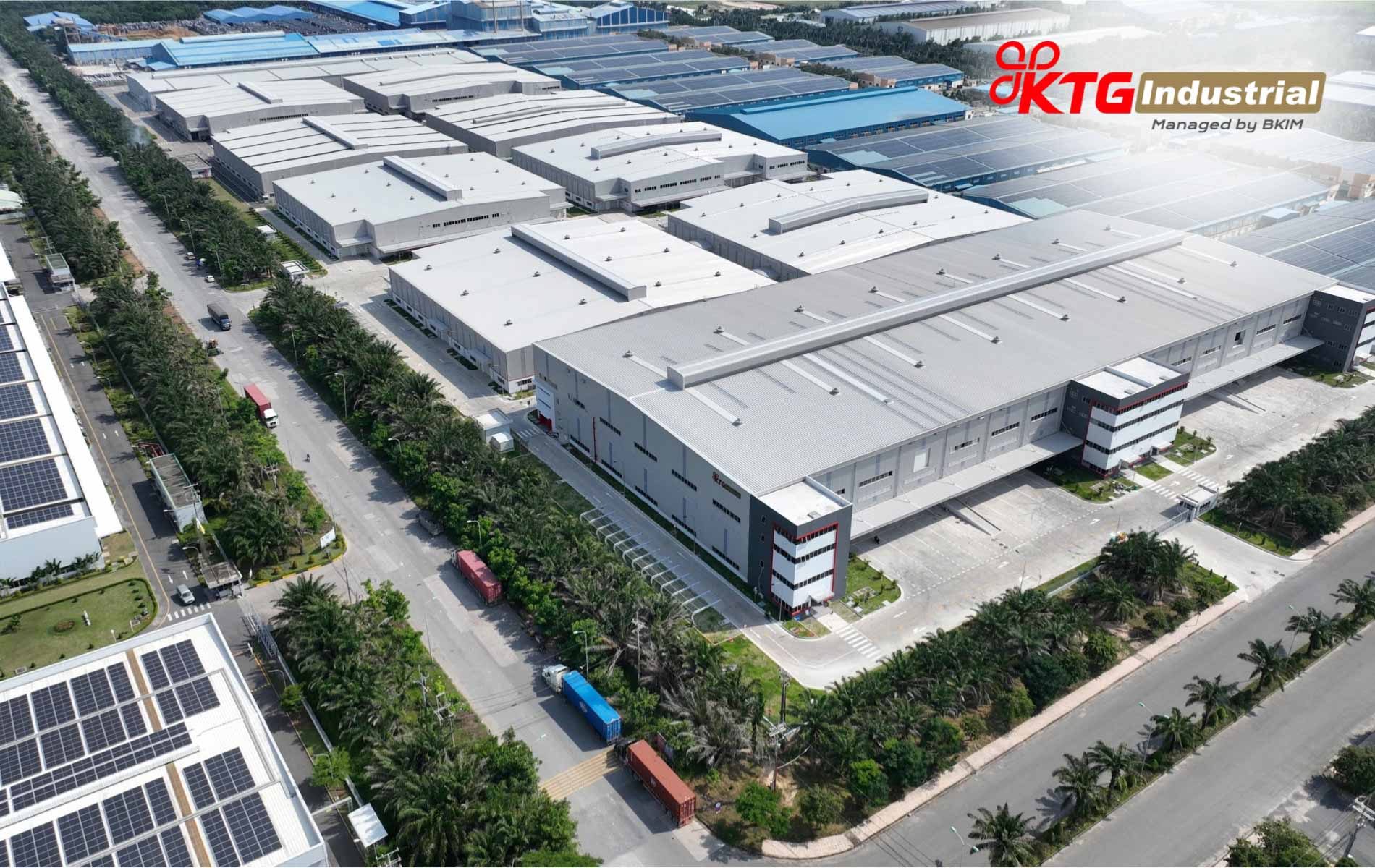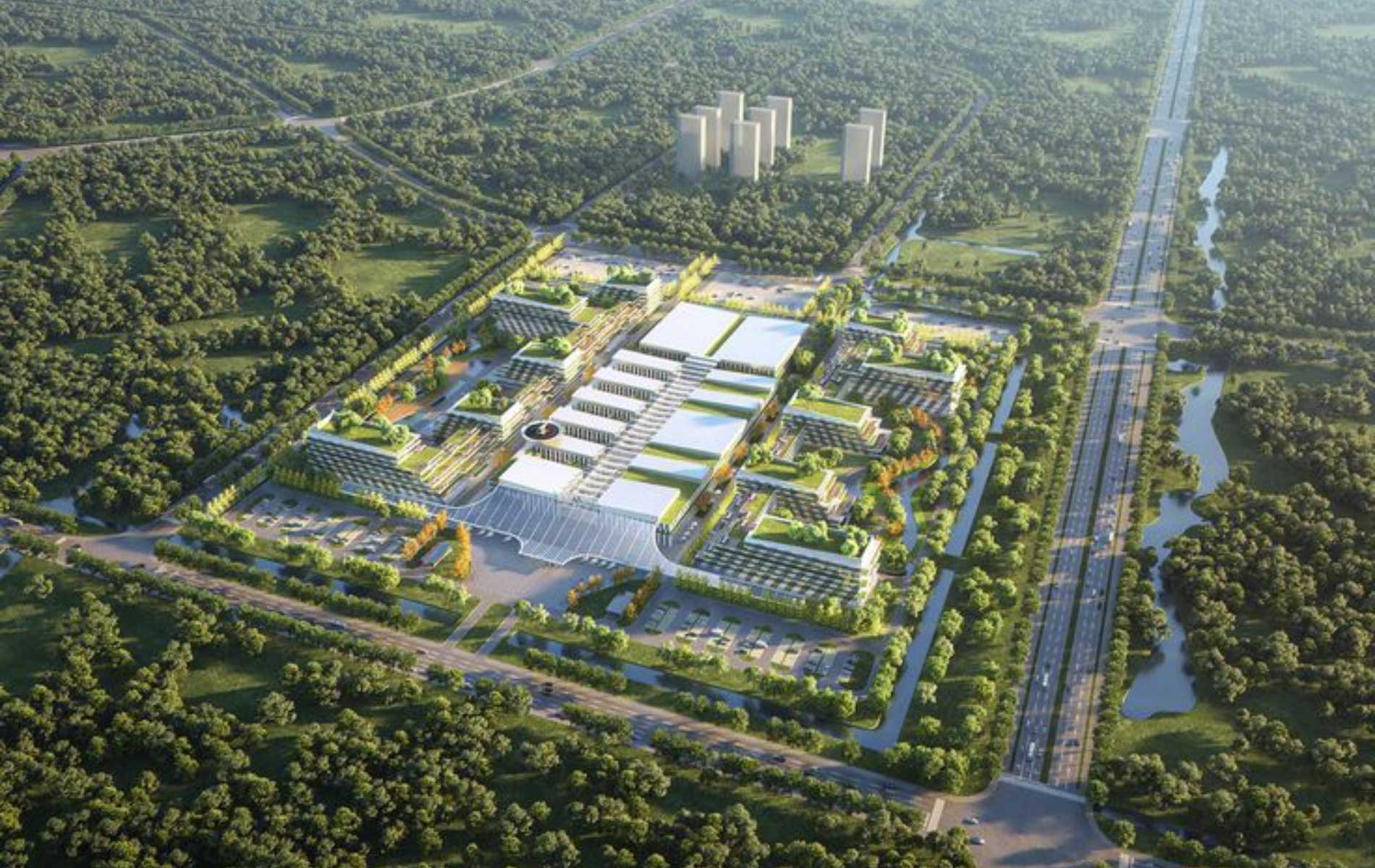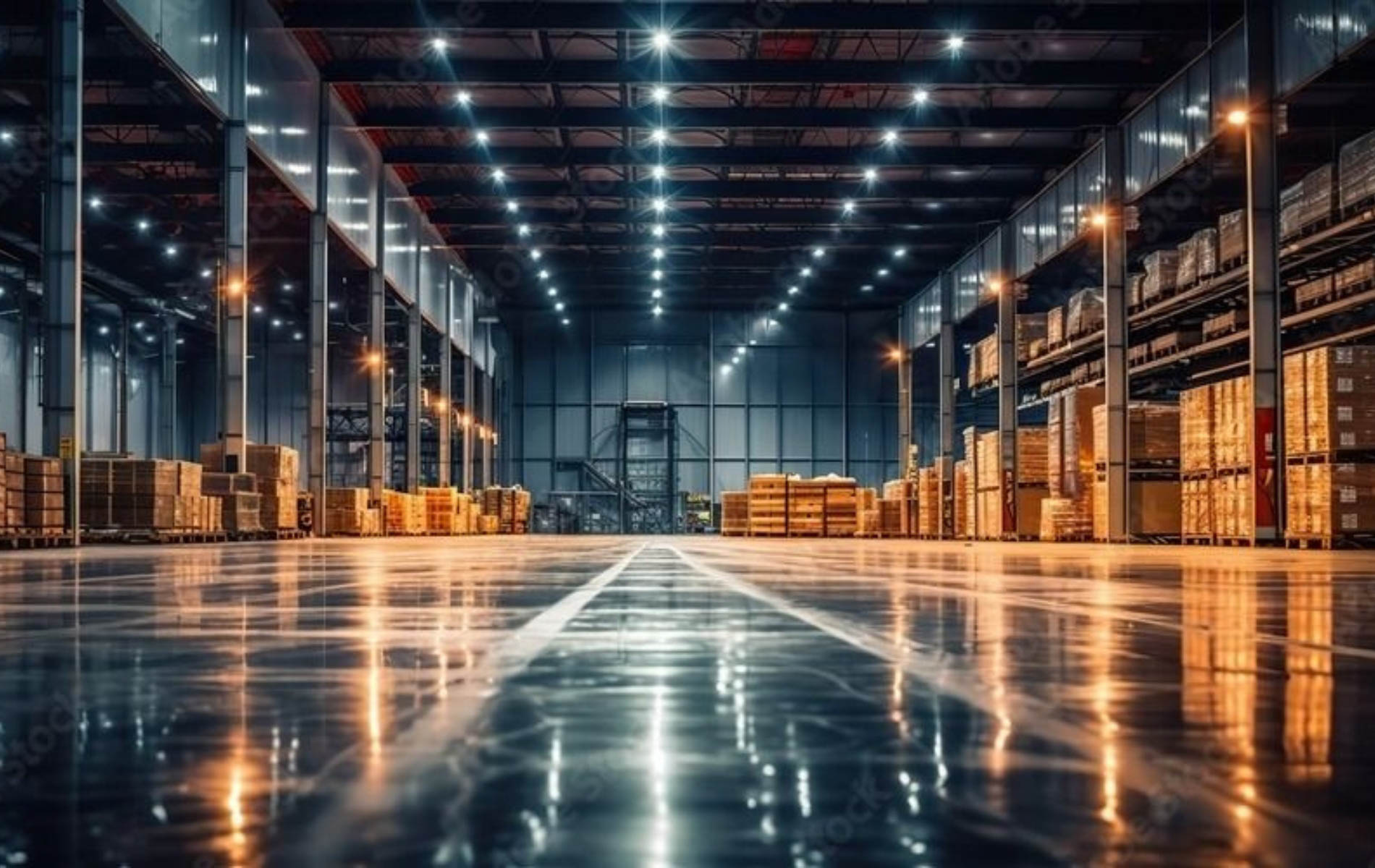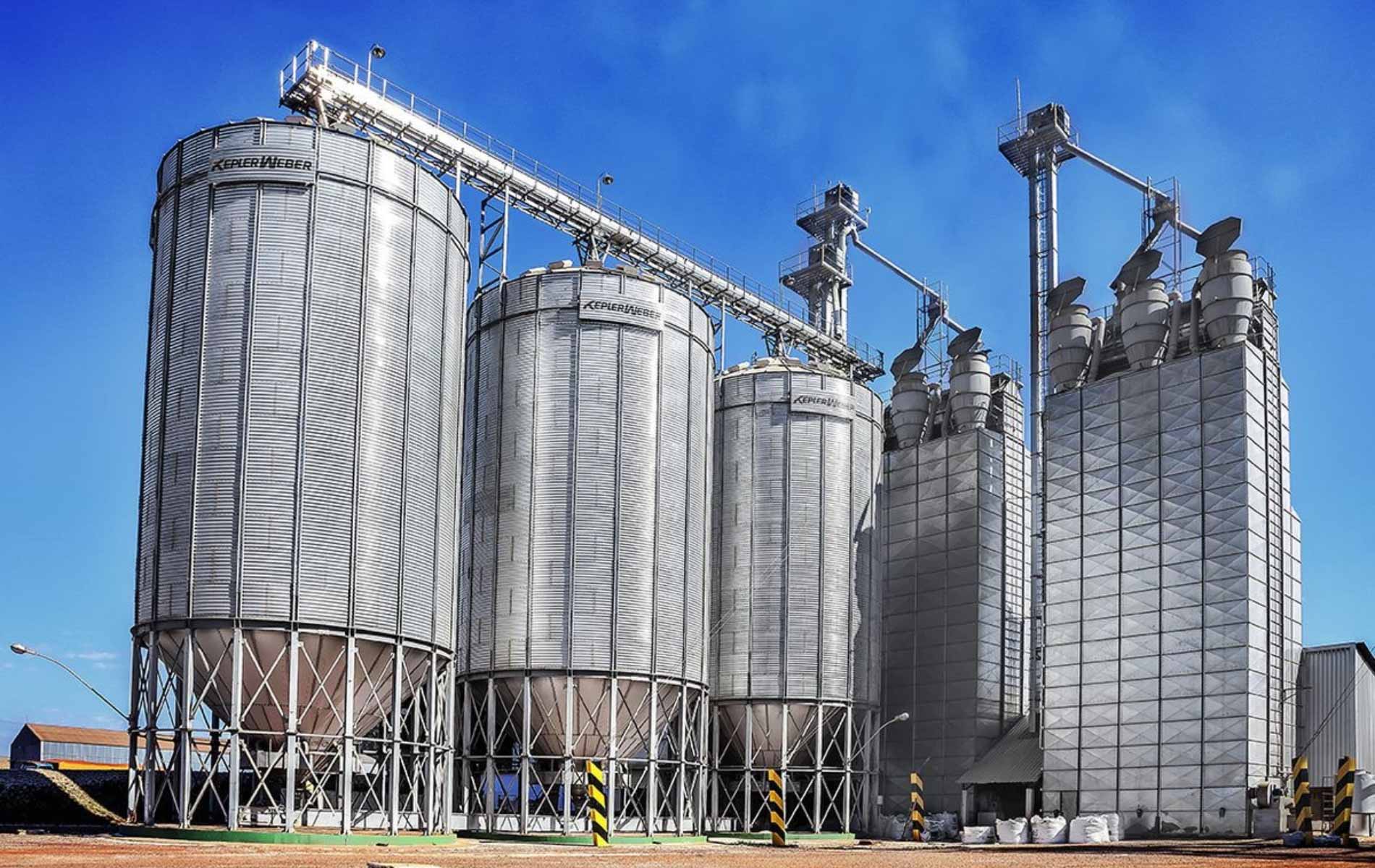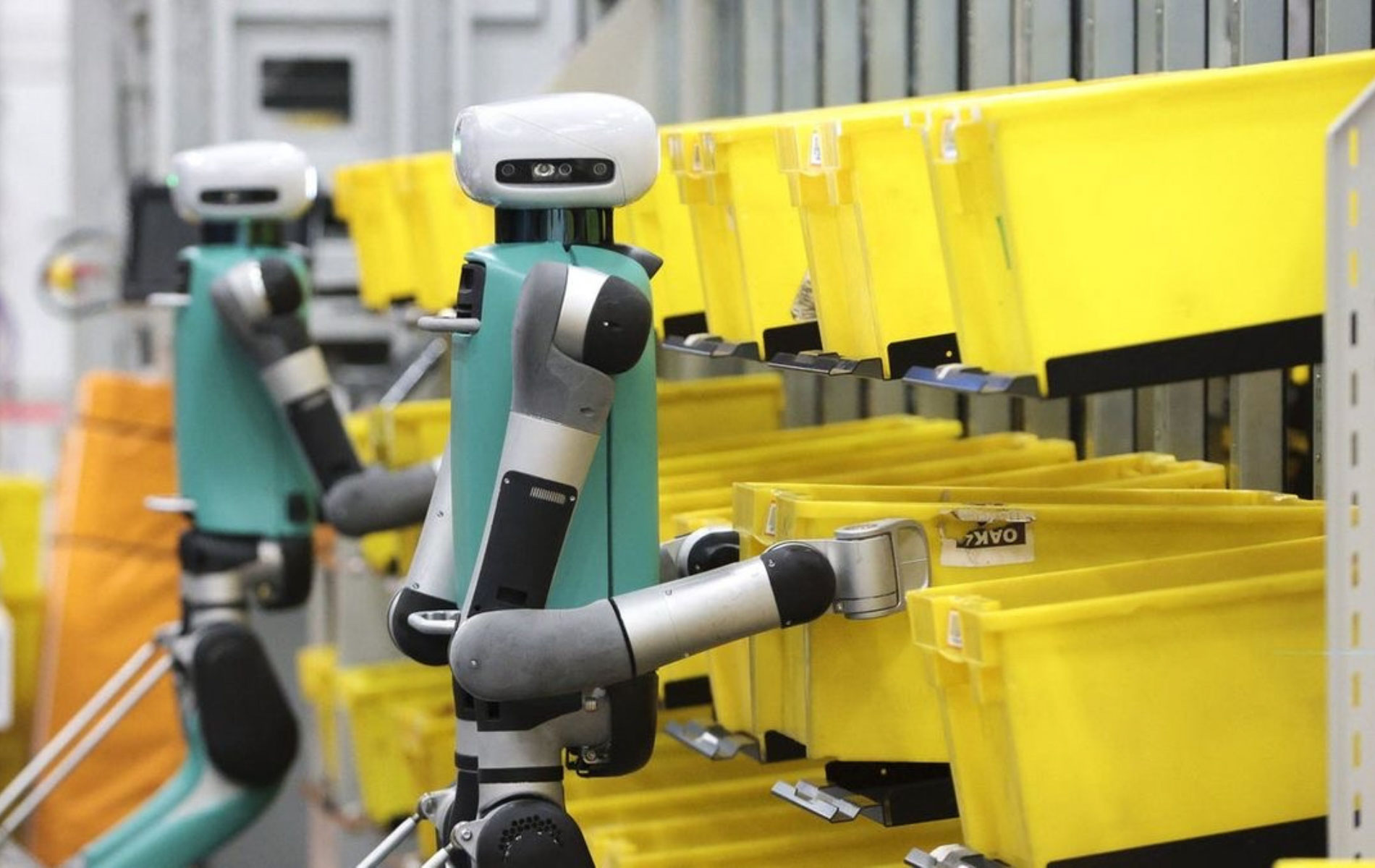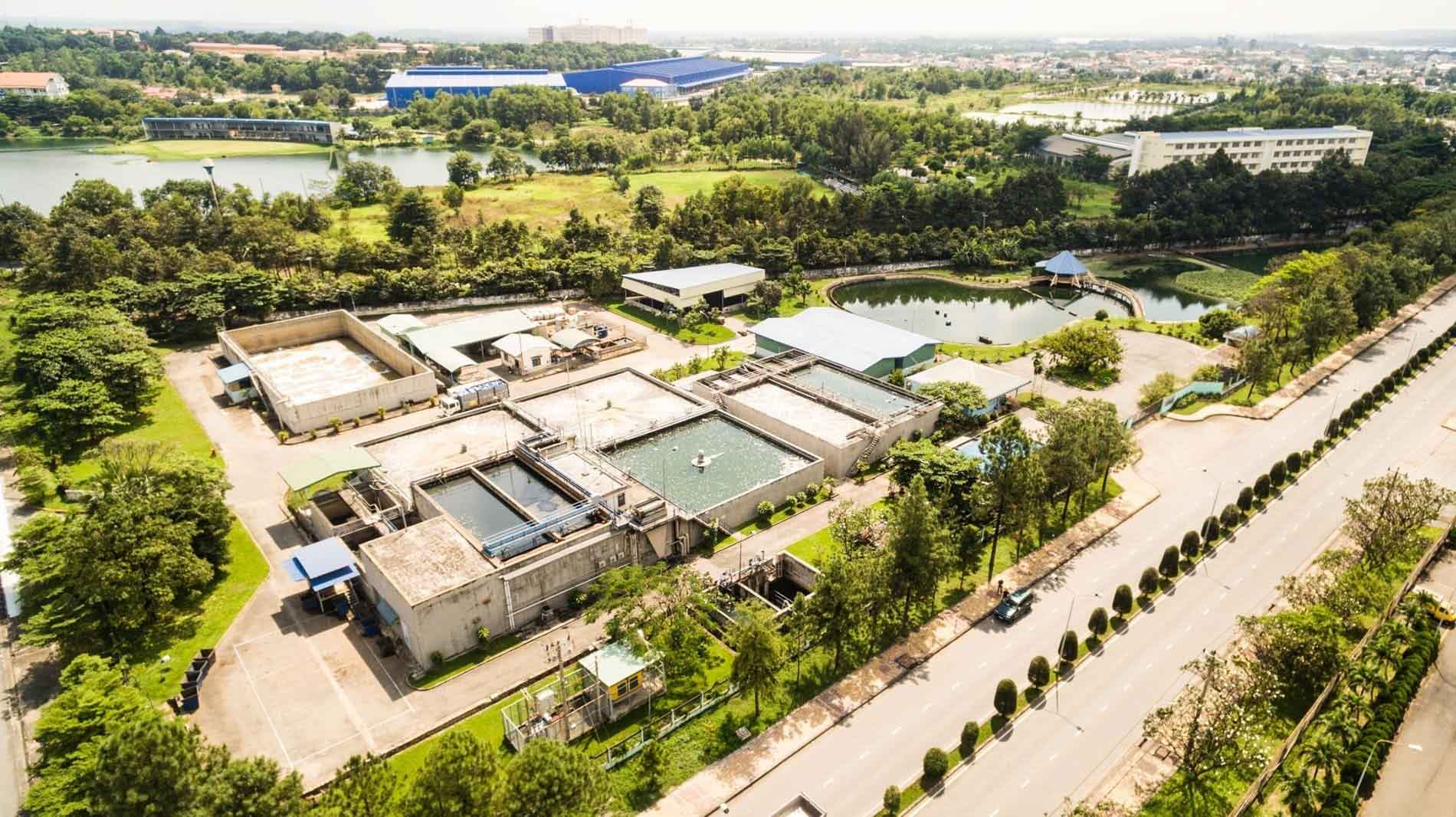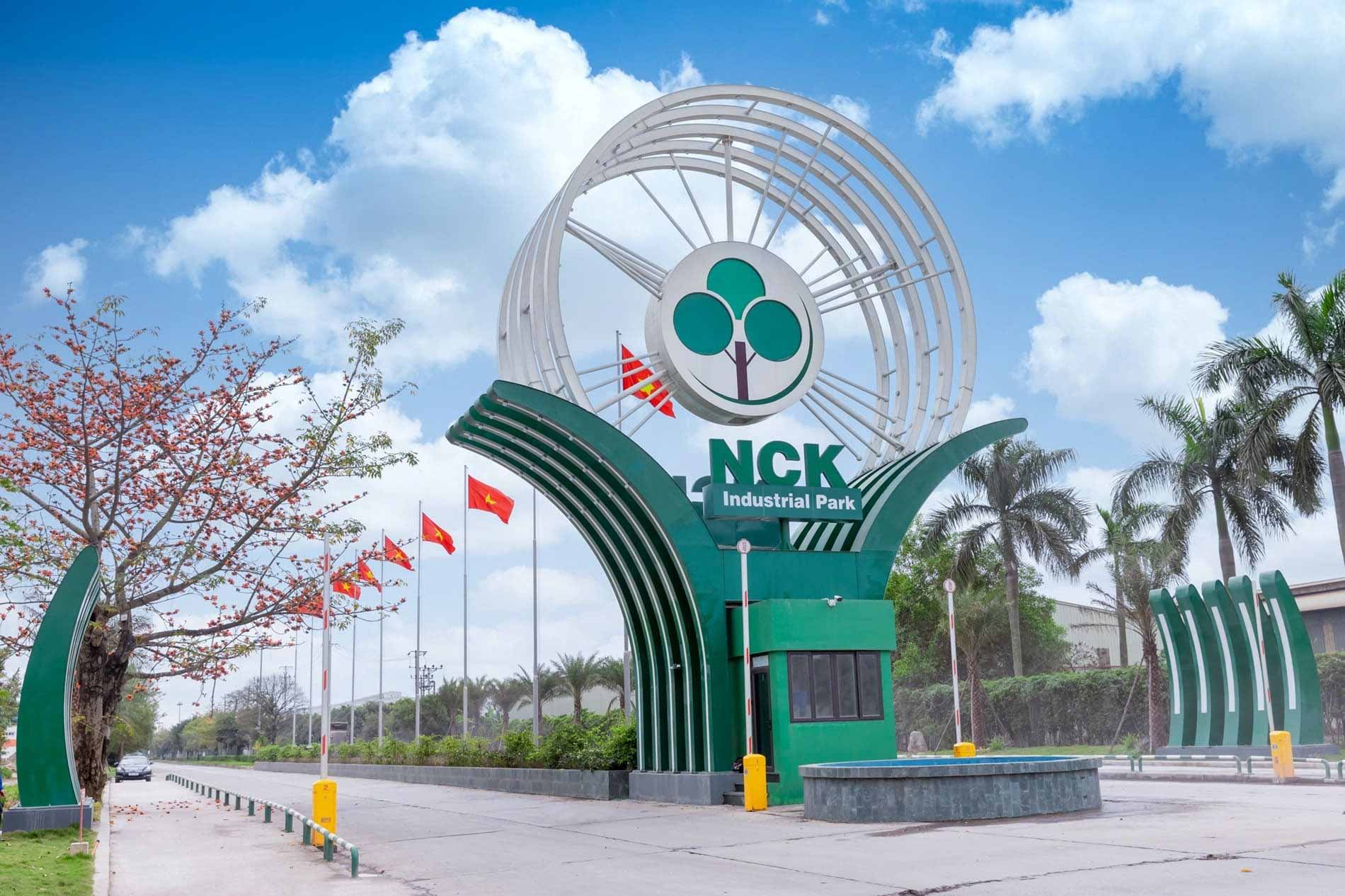Finding the right production space is not just about selecting a location—it directly impacts operational efficiency and long-term business growth. In today’s market, with countless options, identifying a suitable solution for your production space has become more critical than ever.
Through this article, KTG Industrial will outline key reasons for choosing factories in industrial parks, offering practical insights to help you make the most informed decision.
What is a factory in an industrial park?
Factories in industrial parks are large-scale facilities specifically designed to support manufacturing, processing, assembly, and storage activities.
These facilities are fully equipped with essential utilities such as electricity, water supply, ventilation systems, and other necessary amenities, enabling businesses to streamline their production processes while ensuring a safe and efficient working environment for employees.
In addition, factories in industrial parks are integrated within well-planned infrastructure systems that include internal road networks, railway connections, seaports, and modern services such as internet access, air conditioning, and security. This comprehensive setup not only enhances production efficiency but also contributes to regional economic development and helps attract investment in the industrial sector.
10 reasons to choose factories in industrial parks
1. Enhanced security
Factories in industrial parks benefit from strict, around-the-clock security measures, including on-site security teams and 24/7 surveillance systems.
This ensures the safety of company assets and personnel, creating a stable environment for production activities. With tight security controls in place, businesses can operate with peace of mind and focus on scaling their operations without concerns over safety-related risks.
2. Cost optimization
Leasing ready-built factories in industrial parks offers significant cost advantages compared to building from scratch or renting in major urban areas.
Businesses—particularly small and medium-sized enterprises—only need to cover basic operating costs and any additional installation needs, enabling them to allocate more resources toward core production activities.
Moreover, these factories come equipped with essential infrastructure such as power supply, water systems, fire prevention and control systems, and internal roads.
This ensures seamless manufacturing and transportation processes. The flexible range of factory sizes also suits various industries, providing optimal conditions for business operations.
3. Time and labor savings
Leasing a ready-built factory allows businesses to significantly reduce the time required for construction and project completion compared to building their facilities.
This also minimizes the need for manpower dedicated to managing and overseeing the construction process, enabling companies to redirect resources toward core production activities.
As a result, businesses can accelerate their operational timelines and bring products to market faster, an important competitive advantage in today’s fast-paced industries.
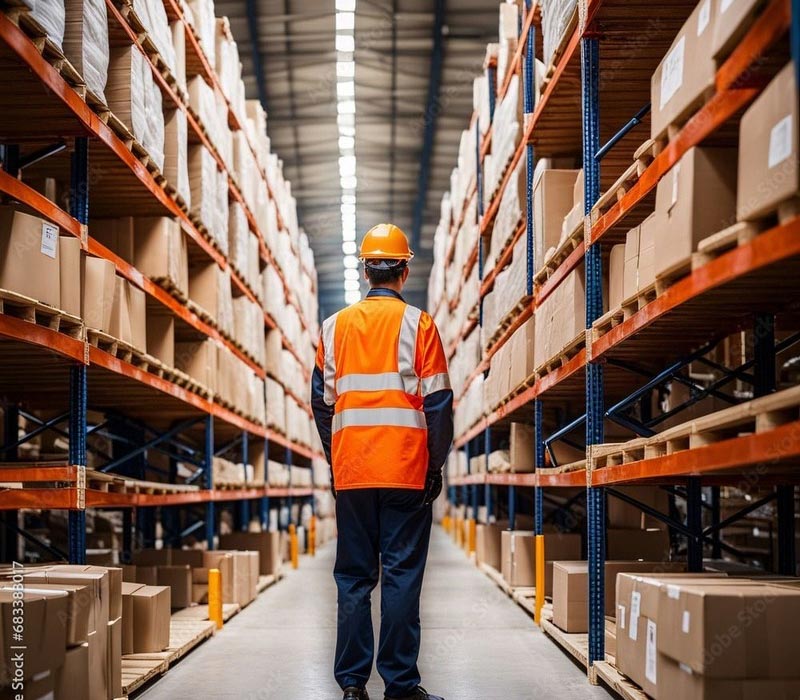
Time and labor efficiency is not just a convenience, but a strategic solution
4. Strategic location
Why is factory location so important to business operations? Ready-built factories are typically developed in key industrial parks with prime locations near major transportation routes such as expressways, seaports, and airports.
Thanks to this advantage, businesses can easily find suitable facilities to meet their manufacturing and distribution needs. This in turn facilitates market expansion and enhances supply chain efficiency.
5. Expanded business networks
Industrial parks bring together a diverse range of businesses from various sectors, offering an ideal environment to tap into community support and expand professional networks. This creates opportunities for cross-sector collaborations and fosters sustainable growth within a well-connected industrial ecosystem.
Factories in industrial parks not only offer cost and security benefits but also streamline logistics and improve customer accessibility. As a result, businesses can take advantage of opportunities to connect with potential partners, contributing to well-rounded growth.
6. Flexible expansion
When scaling or adjusting production capacity, businesses and foreign investors can easily lease adjacent units or relocate within the same park.
This flexibility allows companies to optimize operations without being bound by long-term, inflexible contracts. As a result, expanding production becomes more efficient and less constrained.
7. Reduced legal risks
Legal responsibilities related to land use, permits, or compliance are typically handled by the factory owners or park management.
This relieves businesses—especially foreign investors—of legal concerns, saving time and reducing exposure to risk. In turn, companies can focus resources on production and operations with greater peace of mind.
8. Environmental compliance
Leasing factories in industrial parks allows businesses to operate in line with strict environmental standards, helping minimize negative impacts on surrounding communities.
These parks are equipped with unified environmental management and waste treatment systems, ensuring compliance with legal requirements. This not only supports sustainable growth but also contributes to creating a greener, cleaner working environment.
9. Comprehensive support services
Leasing a factory in an industrial park offers significant advantages through a wide range of professional support services. Businesses benefit from fixed-price leasing options for warehouses or factories, which allow for better cost control and more effective financial management.
Additionally, value-added services such as warehouse leasing for pledged or consigned goods are available, providing flexibility in inventory storage and the ability to use stored goods as collateral when needed.
Moreover, companies are supported with loading and unloading services, facilitating quicker and more cost-effective transfer of goods from trucks into storage.
Essential utilities such as electricity, water, wastewater treatment, and waste collection are fully provided, helping businesses operate more efficiently while reducing administrative burdens and unexpected costs. Together, these services create a supportive work environment that promotes sustainable growth within the industrial park.
10. Diverse factory options
One of the key advantages of today’s industrial parks is the diversity of factory types, tailored to suit the specific production needs of various businesses.
Depending on operational scale and budget, companies can choose between standalone units, adjacent or row-type factories, or even opt for custom-built facilities.
| Factory type | Key characteristics |
| Standalone factory | – Independent unit, not shared with other businesses.
– Full control over layout and operations. – Higher rental cost. |
| Adjacent (row-type) factor | – Built in rows.
– Shared walls between units. – Lower rental cost. |
| Built-to-suit factory | – Custom-designed according to the tenant’s specific requirements.
– Higher cost. |
Limitations of renting factory space in industrial parks
In addition to the benefits, businesses should also be aware of certain limitations when renting factory space in industrial parks:
Rental price risks
Typically, rental prices for factory space in industrial parks are defined in fixed-term contracts. However, upon renewal, rental costs may increase significantly.
This situation can place substantial financial pressure on businesses, especially those in the process of expanding their operations. Fluctuations in rental prices also directly impact long-term business planning and operational stability.

Cost is a critical factor that directly affects every aspect of a business
Lack of full decision-making authority
When renting factory space, businesses operate within premises controlled by the property owner, meaning they cannot freely make all changes to the facilities.
Any repairs, renovations, or expansions require prior approval from the investor, such as obtaining permission before altering the structural layout of the rented space.
This dependency may limit the ability to flexibly adjust the facility to meet the specific development needs of the business.
Risks related to contract terms and lease duration
Factory lease agreements often include clauses that could be disadvantageous, such as short lease terms or requirements to return the premises to its original condition.
If the investor refuses to extend the lease, the business may be forced to relocate, causing production interruptions and negatively impacting operations. Therefore, carefully reviewing contract terms and lease durations is crucial to avoid unexpected risks.
Limitations in location and scale
Suitable factory space in terms of location and size may not be available in all areas to meet a business’s production or warehousing needs.
When factory size is limited or the location is inconvenient for transportation, operational efficiency can be reduced. Consequently, selecting an inappropriate factory space can adversely affect smooth operations and optimization of the supply chain.
What are the characteristics of industrial factory buildings?
Factories within industrial parks play a crucial role in supporting businesses to operate production efficiently and safely. In general, industrial factory buildings in these parks have the following key characteristics:
- They are constructed to high standards of materials, engineering, and safety to ensure stable and effective production operations.
- The locations of industrial parks are usually advantageous for transportation and goods delivery, while also providing a range of utilities and support services for businesses.
- Companies can choose to either lease or purchase factory space for production, storage, and distribution purposes.
- The cost of leasing or purchasing factory buildings within industrial parks is often lower than building separate infrastructure, helping businesses save on initial capital investment.
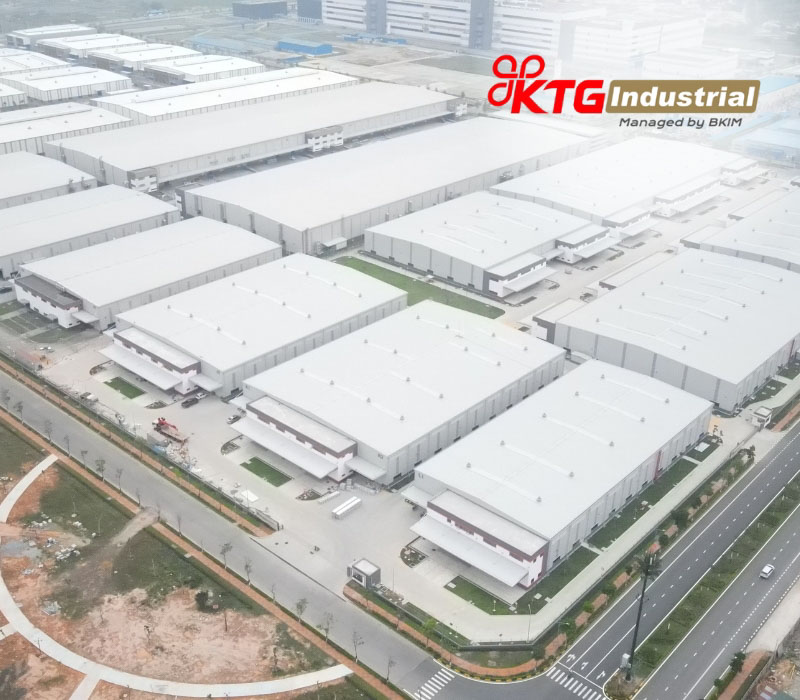
Industrial factory buildings in industrial parks have become an optimal choice for enterprises aiming for sustainable growth
KTG Industrial – A trusted provider of factory leasing
In the context of global businesses rapidly transforming towards sustainable development, KTG Industrial stands out as one of the rare companies in Vietnam to apply ESG (Environmental – Social – Governance) standards across its entire leased factory system.
This is not only an inevitable trend but also a long-term commitment by KTG Industrial to create a green, safe, and transparent manufacturing environment.
Regarding the environment, KTG Industrial focuses on developing a “green factory” model, with factories equipped with rooftop solar power systems that harness renewable energy to reduce carbon emissions, aiming for a Net Zero target.
Some projects featuring rooftop solar installations include KTG Industrial Nhon Trach 2 (Phase I), KTG Industrial Tam Phuoc B, and others.
Additionally, factory designs emphasize optimizing natural lighting, wastewater treatment systems meeting standards, and sustainable building materials—all aimed at minimizing the impact on the surrounding ecosystem.
Social factors are also prioritized by ensuring worker safety through modern fire prevention systems, reinforced concrete floors, and infrastructure built to high standards in every detail.
Beyond environmental and social considerations, KTG Industrial has established a transparent governance model, professional operations, and a strong commitment to community responsibility.
Each leased factory is not merely a production space but forms part of a comprehensive sustainable development strategy—where businesses can confidently expand operations, enhance brand value, and align with the latest international standards.
Conclusion
In summary, choosing factory buildings within industrial parks offers practical benefits in terms of cost, amenities, and safety, while also facilitating business expansion and operational optimization.
Based on the above 10 reasons, KTG Industrial believes that industrial park factories are an effective and sustainable solution to support enterprises in thriving within an increasingly competitive business environment.

